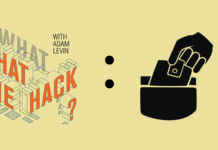 A recent Experian study found that most people still have a lot to learn about the risk of identity theft. The majority of those surveyed felt like they were safe from identity theft, but not for the right reasons. The most popular misconception was that scammers, phishers and identity thieves only target the rich and possibly famous.
A recent Experian study found that most people still have a lot to learn about the risk of identity theft. The majority of those surveyed felt like they were safe from identity theft, but not for the right reasons. The most popular misconception was that scammers, phishers and identity thieves only target the rich and possibly famous.
In reality, identity thieves target low-hanging fruit. To an identity thief, we’re all Kim Kardashian.
More than half of the respondents didn’t think they’d make a good target for scammers because of bad credit. This is also a misconception, since a crook will generally have zero scruples about taking over your credit accounts (even with their crippling interest rates), and making them even more impossible to manage by further damaging your credit.
What Makes a Good Target?
The number one criterion is whether or not personally identifiable information (PII) has been compromised in a data breach, but there are other ways that we expose (and overexpose) ourselves. One of the most common ways is through oversharing on social media.
Our information is out there, but there are things we can do to make it harder to exploit.
Enter Clark Kent, Bruce Banner, Peter Parker and Bruce Wayne. All have a mix of gadgets and superpowers that make them formidable opponents in a fight. They’re also known for being good in a crisis, which is not always the case for regular people when they find out, for instance, their identity has been stolen.
Another difference between us and the superhero elite: Instead of Lex Luthor, Absorbing Man, Doctor Octopus and the Joker, we’re often targeted by a slipper-wearing enemy who simply likes to shop beyond their means or grab our tax refunds, or a small-time crook who’s good at guessing games.
To avoid their arch enemies, superheroes lead double lives. Having an alter ego allows them to avoid detection in a world where their nemesis is always going for a kill. You need to do the same thing.
In the real world, we’re all superheroes, at least when it comes to the stalking arch enemy waiting to Ka-Pow us with credit-based smash-and-grabs. Here are some superhero tactics that can help protect you.
Abandon Your Past
If you feel compelled to post pictures and memories to social media, you are playing a dangerous game that an identity thief can use to scam you. Details about you can help a good scammer figure out the answers to your security questions.
Be Evasive
Even if you think it can’t be avoided, your first answer when asked for your SSN should be no. If they insist, ask how they will store the information. If you don’t like the response (they don’t know how it’s stored, etc.), say no again.
Lie
There is no task force out there rounding up people who provide a fake birthday on a gym membership application. Sometimes you can’t fudge date of birth, because it is a pivotal identifier, but you can certainly lie to your heart’s content on social media, where many thieves look for victims. The same goes for security questions. Make up an alternate story: You grew up on a farm in Kansas, you’re nearsighted, etc.
Be Consistent & Vigilant
If you’re going to take the liar’s route, remember your backstory. There’s nothing worse than providing a telling clue when faced with one of your arch enemy’s henchmen because your guard is down.
Use a Nickname
Since many thieves mine useable data about you on social media, that’s the place to use your childhood nickname only your besties know. The benefit there is that your name is a primary piece of PII, and whatever your embarrassing moniker was or is, it’s not associated with your Social Security number.
Take a page from the superhero annals to protect your identity. You are more vulnerable to attack than you may realize, but there’s plenty you can do to make yourself harder to hit.
One very easy thing you can do is adopt the Three Ms, which I describe in detail in my book, Swiped: How to Protect Yourself in a World Full of Scammers, Phishers, and Identity Thieves. The short version of them:
• Minimize your exposure. Don’t authenticate yourself to anyone unless you are in control of the interaction, don’t overshare on social media, be a good steward of your passwords, safeguard any documents that can be used to hijack your identity and consider freezing your credit. (We explain here what a credit freeze is.)
• Monitor your accounts. Check your credit report religiously, keep track of your credit score (you can view two of your scores for free on Credit.com) and review major accounts daily, if possible. If you prefer a more laid-back approach, sign up for free transaction alerts from financial services institutions and credit card companies, or purchase a sophisticated credit-and-identity monitoring program.
• Manage the damage. Make sure you get on top of any incursion into your identity quickly and/or enroll in a program where professionals help you navigate and resolve identity compromises. These are often available for free, or at minimal cost, through insurance companies, financial services institutions and HR departments.
Finally, if you have not yet claimed your superhero identity, you can do so online, but bear in mind Encryptoman (aka me) is already taken.










